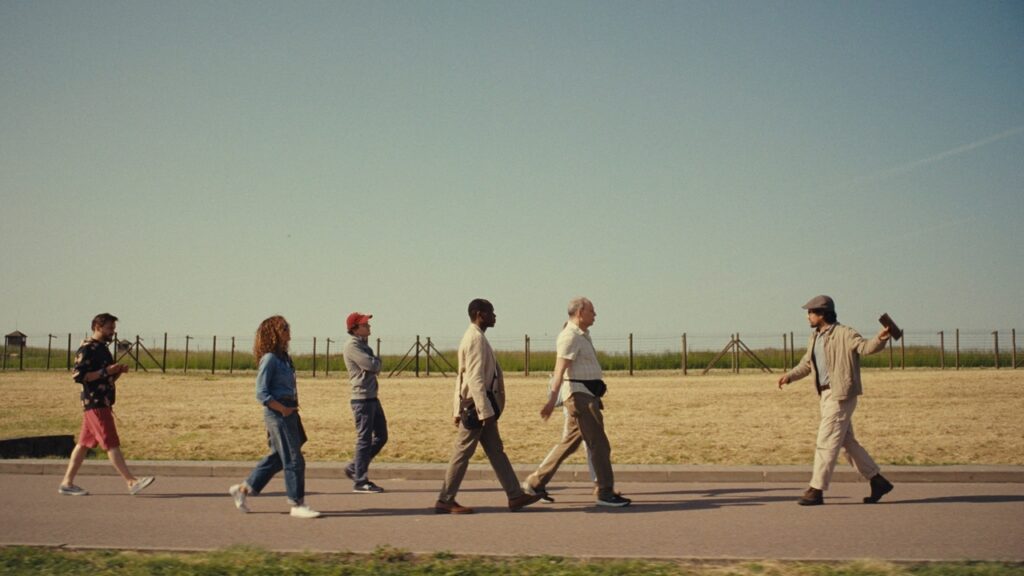Read also:
How to Watch FX Live Without CableHow To Watch AMC Without CableHow to Watch ABC Without CableHow to Watch Paramount Network Without CableMany interpret the magic of the movies as referring to film’s ability to show audiences something they’ve never seen, immersing them in worlds they’ll never visit. But the flip side of it is also true. Sometimes, movies can magically ground viewers in worlds achingly familiar, surrounded by people so recognizable they’d swear they knew them already. That latter “trick” is what A Real Pain pulls off with unfussy ease.
David (Jesse Eisenberg, also pulling writing and directing duties) and Benji (Kieran Culkin) were the kind of cousins who grew up so close that you could confuse them for brothers. Time and responsibility take their toll, though. A family man, David can no longer spend all night running around the City, even as he now calls it home. Benji, on the other hand, has plenty of time but has rooted himself in Binghamton and the basement of his mom’s house. Before the start of the film, their grandmother dies, prompting the duo to finally follow through on the tour of Poland—and visit her childhood home—they had been circling for years.

The big headline of early coverage of A Real Pain has been Culkin and rightfully so. Benji is a maddening figure. He speaks empathetically and seems poised to big up everyone around him one moment, the next lashing out, unable to see a situation from anyone’s perspective but his own. His criticisms are often nasty and barbed. Yet he’s quick to dismiss them when the occasional target circles back to say, “That hurt, but you did show me something true.” He’s well-loved but pushes that love to its limits, seemingly just to point and say, “See, you don’t care about me.” It’s a perfectly cooked steak of a role and Culkin relishes it without swimming in the ham river (to mix meat metaphors).
This reviewer, however, feels compelled to elevate Eisenberg’s performance for compliment as well. By nature of the script and performer, it’s a decidedly less attention-grabbing turn. However, it is equally well-observed and executed. Eisenberg embodies the quieter friend who lived in his flashier friend/cousin’s wake for years. He still can’t help but act the sidekick despite, arguably, having a more realized and fulfilling life. David’s spotlight moment comes during a dinner rant, but the storm out and angry walk back to his hotel room afterward truly showcases the actor’s skill. As a viewer, you can’t look away from the awkward body language that pulses with suppressed anger and jealousy. It traps both the character and the audience in a near-explosion that will never come.

As much of a motormouth as Culkin’s Benji can be, A Real Pain is exceptionally skillful in managing silences. The look Eisenberg shoots his sleeping cousin multiple times. The hush of a rooftop joint overlooking the neon lights of a Polish city. The pained and sick silence of a concentration camp tour. Time and again, Eisenberg lets the scenes sit in a moment. The patience brings the sweetness, pain, and confusion to the surface without over-explanation. It isn’t a showy cinematic experience but a confident one, filled with small moments that linger.
The film’s willingness to offer an ending but not a comfortable resolution is also laudable. It wisely eschews an ambiguous, ambivalent conclusion that might send an audience home under a heavy cloud. However, it doesn’t race to the alternative, a happily ever after reassurance that all is healed and forgiven. Benji is difficult. Life is difficult. People grow apart even as they wish they wouldn’t. Like Benji keeps demanding of everyone around him, A Real Pain ends on a note of feeling everything. To paraphrase him, if the cinema isn’t the place to feel joy, sadness, anxiety, and regret, where the hell is?
A Real Pain sparks one up and rages against the rich starting November 1 in select markets. It reaches wild release by November 15.